Let’s face it – Crazy Rich Asians is not great at representing Asia. It is, in reality, a continent home to more than half of the world’s poorest folks, as well as more than 68% of the global illiterate adults. While I wouldn’t go so far to say that the movie glorifies wealth (most of the characters were petty caricatures rather than inspirational figures), the filthy rich and highly educated are the only ones we got to see in a film touted as watershed for Asians on Hollywood screens.
It doesn’t even do that good a job in representing Singapore, where the box office hit is supposedly set, as most of Crazy Rich Asians was actually shot in Malaysia.
But it is unfair to pin the burden of encompassing a notoriously-fragmented and dizzyingly-multicultural region on a romantic satire of the moneyed minority. If anything, it is perhaps the fault of Hollywood that this is the best one we’ve got.
What the movie is pretty good at is being a romantic comedy.
Crazy Rich Asians follows a sensible working-class American, Rachel Chu (Constance Wu), as she travels to Singapore with her boyfriend, Nick Young (Henry Golding), to attend his best friend’s wedding. During the trip, she is introduced to Nick’s family, the titular one-percenters.

Run, Rachel!
Rachel is quickly thrown into the gritty game behind the gilt – dating the “Prince William of Asia” means fending off green-eyed socialites and parrying the thinly-veiled spurn from Nick’s mother, Eleanor Sung-Young (Michelle Yeoh). For Rachel, an economics and game theory professor at the New York University, it’s time to play to win.
The movie, based on a novel of the same name, had plenty of high notes (quite literally, with its delicious big-band Old Shanghai lounge soundtrack). The syrupy love-against-odds plot, albeit a tad banal, is carried by a lineup of endearing characters, nuanced acting, and witty lines, all packaged in opulence porn engineered to tap into whatever wiring in us that makes the Kardashians famous.

Obviously the sunglasses and light-coloured-pants industries are recession-proof
But there are janky notes. Character development seemed to have been sacrificed in a bid to fit its gigantic cast and side plots that, while compelling, do not seem relevant to the main narrative. The movie hardly had time to delve into Rachel’s Asian American identity and cultural tension – given that it will later be her core conflict with Eleanor – before being hurled into the crazy rich Asian drama.
Then, there is that unshakeable feeling of déjà vu – crazy rich Asian drama was exactly what had been playing on television throughout my formative years. Growing up in Malaysia, I had subsisted on a daily diet of Chinese TV shows – mostly produced by Hong Kong’s main broadcaster TVB – along with my friends and family. Often, the plot revolves around a tale as old as time: family infighting over inheritance or other resources. The richer the family, the muddier the wrestling ring. You can imagine that palace dramas are especially out of control.
Yet intrigue and twists slowly becomes run-of-the-mill as these shows cycle through similar plots carried by the usual set of stern matriarchs, reluctant heirs, debauched brats, a gaggle of goosing girls (or a murder of crowing concubines, depending on the era) vying to ascend the pecking order, a naïve protagonist trying to stay upright, and a sassy ally – everything Crazy Rich Asians seemed to be recycling (or upcycling).
This, however, brings me to what the movie did excel at: rewriting the rules of a stale Asian TV formula.
Mad spoilers ahead
Let’s back up a little. Crazy Rich Asians, shed of its rom-com packaging, is a movie about power play. The sons marry for economic alliance. The socialites resort to fishy schemes to scare off the working-class nobody who nabbed their “Asian Bachelor”.
The alpha-matriarch in the movie, Ah Ma (Lisa Lu), holds the deference and awe of a family of multi-billionaires and celebrities.
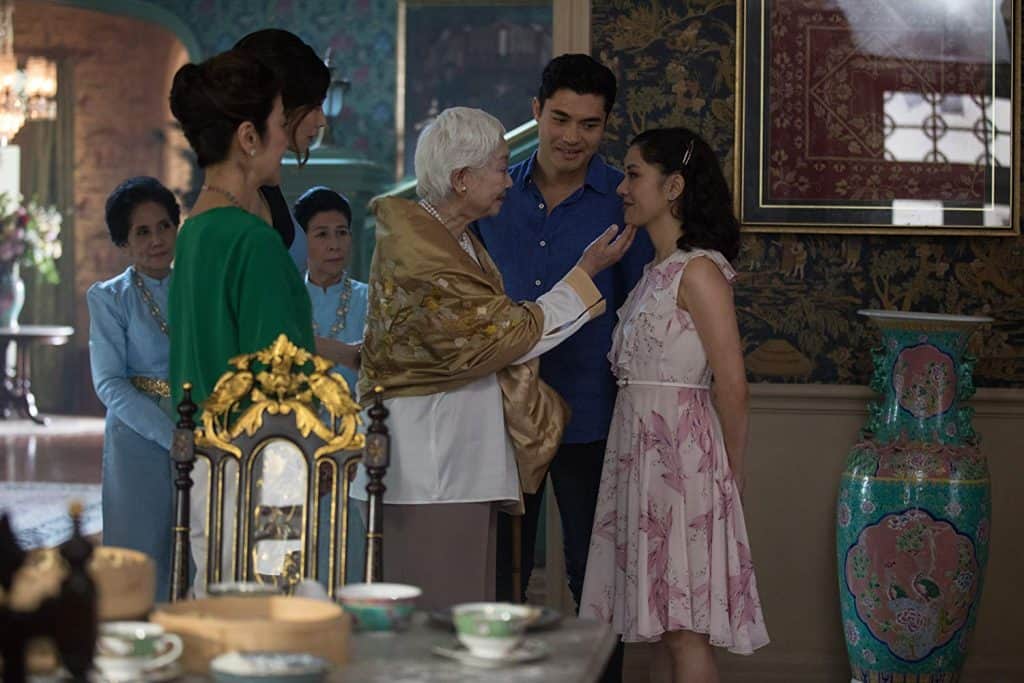
You need to be especially powerful to get away with holding the chin of someone you just met
The white-haired elder seems to reserve a special spite for one particular daughter-in-law, Eleanor – Nick’s mother. It turns out that Ah Ma had disapproved of her son marrying Eleanor, who was not from a background of equal stature. Knowing this, Eleanor sent her Nick to stay with Ah Ma when he was a boy, in the hope that he would win over the matriarch in her stead. Her plan worked – Nick is his grandmother’s favourite, and Eleanor seems to occupy a higher status than the rest of the family.
It sounds devious, but Michelle Yeoh’s finely calibrated performance of Eleanor makes her less like a dragon lady and more like an anti-hero who had to do what it takes to win in a favouritist system.
But, despite her prestige in the family, Eleanor is still the daughter-in-law who never measured up – Ah Ma openly derides the dumplings she makes and blames Nick’s disobedience on her failings as a mother.
Now, Eleanor repeats the same derision towards her own son’s girlfriend, believing that Rachel would “never be enough” for Nick due to her humble immigrant background. Thus, the cycle of prejudicial sabotage continues.
And it looked like things would have spiraled further. After all, Rachel, like Eleanor, did not curl up in the face of snobby antagonism. Instead, the academician tries to prove that she does measure up by hobnobbing with even more powerful people and dressing more like them (cue an obligatory-rom-com makeover montage).
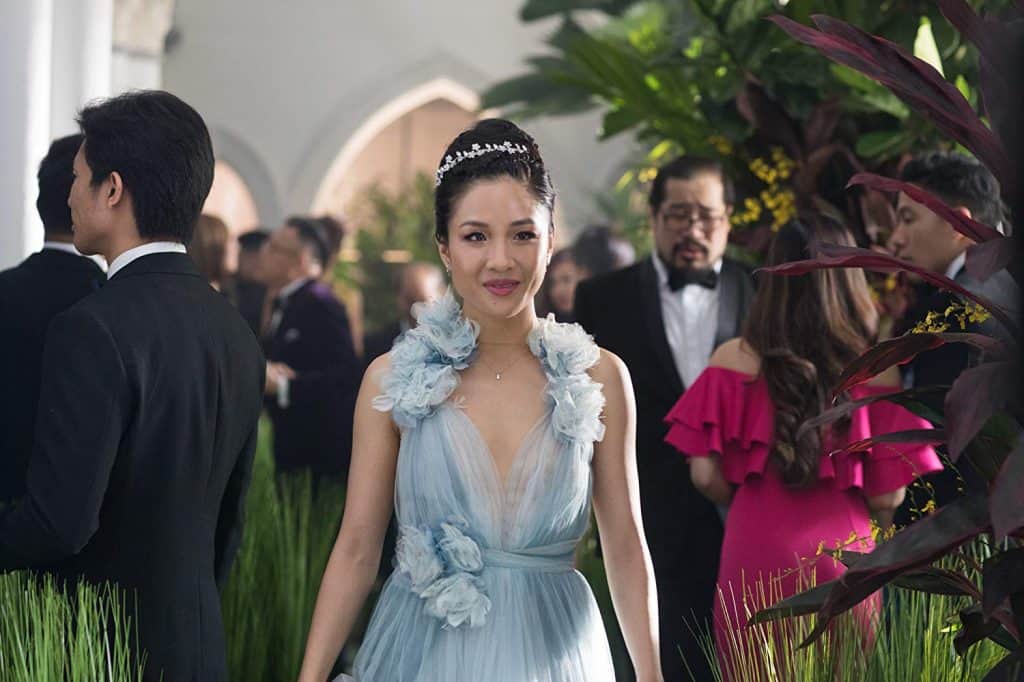
She’s come a long way off the boat
The power play comes to a head when Eleanor hires a private investigator to dig up dirt on Rachel’s family and weaponises the information to turn Ah Ma against her.
Rachel realises the futility of competing with bullies. This leads to one of the best showdowns in movie history – a game of mahjong, which was not in the book.
It is a complex scene – one so full of symbolisms that whole articles were written just to unpack it (here and here are two great analyses).
Here’s a gist that does the scene no justice: Rachel and Eleanor have a final face-off over mahjong. With shrewd deduction and sizable hesitation, Rachel deliberately let Eleanor win the game. At the same time, Rachel reveals that Nick had actually proposed to her and was willing to walk away from his family and his wealth, but she turned him down. While she loved Nick, she chose to let him go as she didn’t want him to lose his mother.
Eleanor won, both in mahjong and in the ‘battle’ over Nick – victories enabled by Rachel.
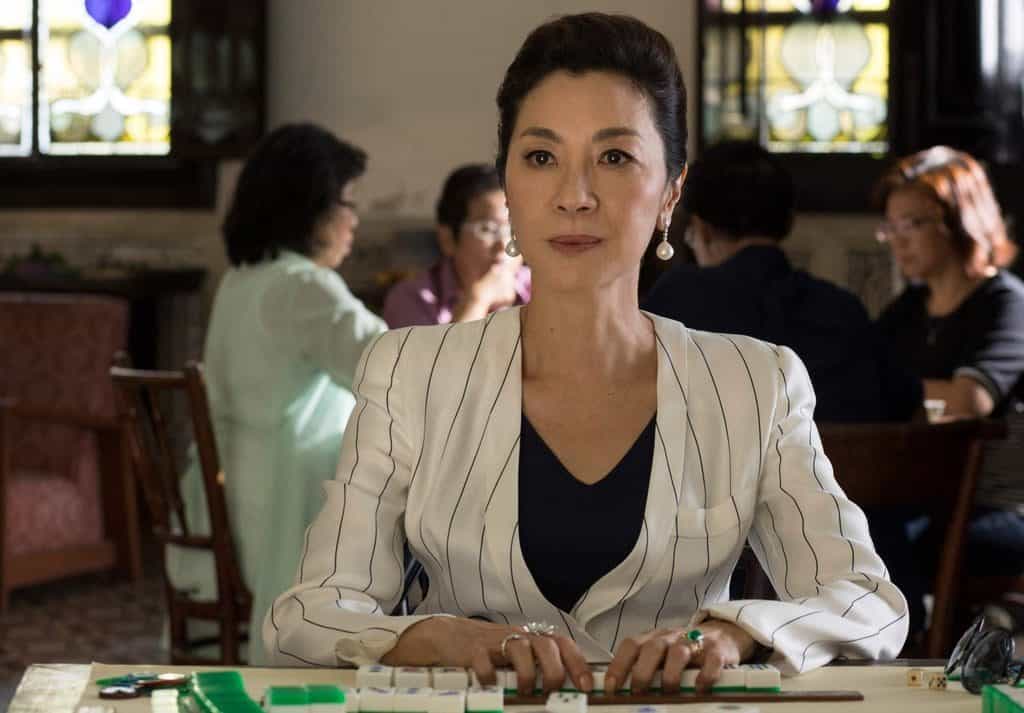
Whatahtwist!
Rachel proceeds to drop the mic, “…I just wanted you to know, that one day – when [Nick] marries another lucky girl who is enough for you, and you’re playing with your grandkids while the Tan Hua’s are blooming, and the birds are chirping – that it was because of me: a poor, raised by a single mother, low class, immigrant nobody.”
Then, Rachel reveals her hand, showing Eleanor that her triumph was not earned but facilitated, and walked out.
This seemed to have broken the vicious spell. Instead of maintaining superiority, Eleanor decides to help her son’s true love enter the family – she gives her own wedding ring to Nick so that he can propose to Rachel again – even though this defies Ah Ma, who condemns Rachel’s background.
As such, the movie seeks to unravel a dilemma that Hong Kong dramas had long milked but never quite bothered to resolve – what do you do with a discriminatory system that forces you to go at each other’s throats? You beat it not by jumping into the fray, but by working together and helping each other.
It’s like how Rachel describes the skills needed in a game of mahjong, “Negotiation. Strategy. Cooperation.”
Some happy endings are not worth fighting each other for.
Also published on Medium.

writes about pop culture with the suspicion that it is actually writing her.

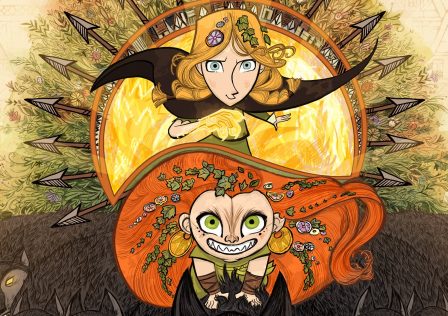

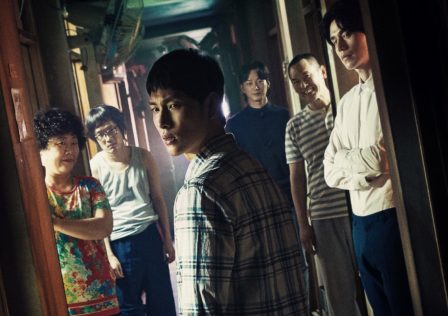
1 Comment
Eileen
Nov 08, 2018 2:21 pmWhere is the darn “Like” button here?